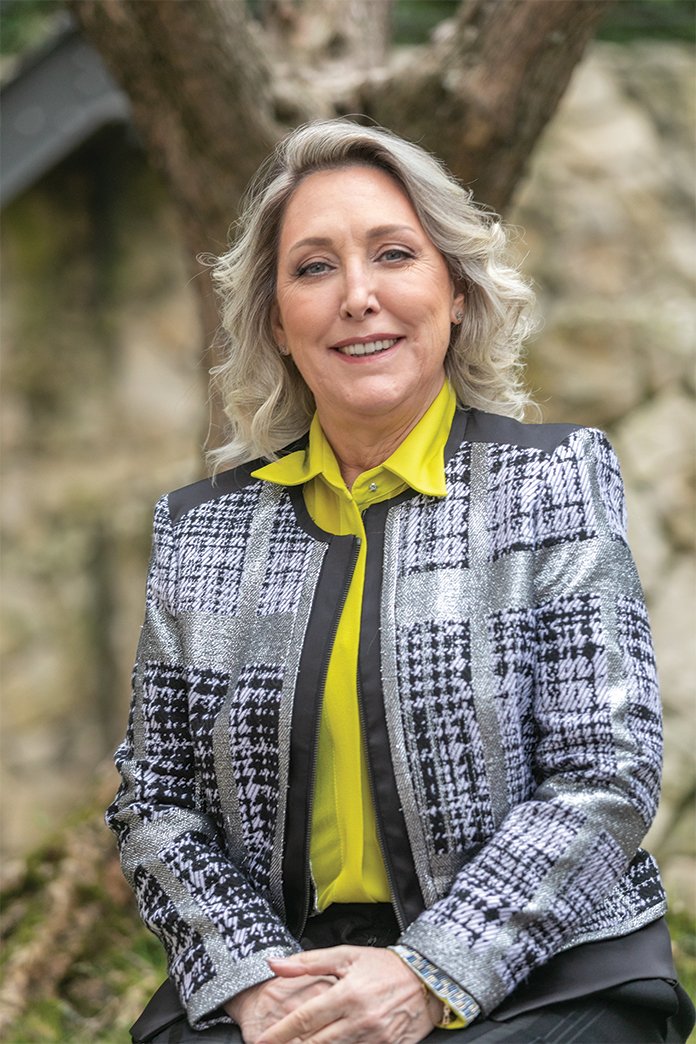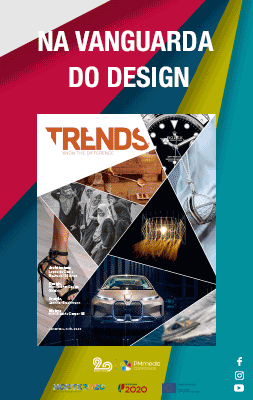
Elizabeth da Graça Isidoro
«I always believed that I would be able to do something for my country»

The COSAL Group was founded at a difficult time in Angola…
The COSAL Group, as we know it today, began in 1982. It came about because I was working at the Banco de Poupança e Crédito bank and, as I was requisitioned by the Ministry of Trade, I decided to set up a private company. It was the first, in these terms, in Angola, after Independence. At that time, it was very difficult to get authorisation for this, it even went to the Council of Ministers, and I think the government authorised it because it was a company based and born in Huambo, which was a very complicated region because there was a constant war going on between UNITA and MPLA. Access had to be by air because there wasn’t any land access. So I teamed up with my brother Luís Isidoro, who is still with the company, Armando Augusto Machado, who was part of the old COSAL, plus José Manuel Daniel and Amaro Serrano who eventually left because they returned to Portugal. In 1992, Jaime de Freitas, José Junça, Augusto Meireles and Manuel Costa joined the Group. However, today COSAL is left with only these partners: myself, Jaime de Freitas and Luís Isidoro.
Does the name of the company refer to anything?
I founded the new COSAL from scratch and the name ended up being a question of simplicity, as it had already existed in colonial times, but the company was confiscated by the state. At that time, COSAL was Costa e Almeida, the name of the people who, together with my ex-husband, started the company. He, out of sympathy with those people, asked for it to be kept and it was. But the name was later changed to Comércio e Serviços de Angola. The name never meant anything to me, but as it was already known at international level as an import company, even though it had disappeared, it was kept in the statutes and, when I came back with the same name in another era, in terms of brands, it was easier to work with. But, in fact, COSAL became visible in the Angolan market, taking its greatest steps towards consolidation after taking on the representation of the Hyundai brand in Angola, which served as the basis for representing the other brands that followed.
What did the company import before independence?
It was Fiat and DEUTZ, in tractors and agricultural machinery, essentially Italian and German brands, and also all the components, not only of those brands, but also others. Basically, COSAL’s forte was parts and accessories, and as I always liked cars, this was also the sector for the new COSAL.
But imports only began in 1992.
Yes, it was when the state approved it, we had just entered the Market Economy and imports began to be allowed. Before, we received all the material through ABAMAT, the state central office and companies only had the right to a quota, for parts and accessories, and as far as vehicles were concerned it was almost nothing.
«We have to overcome problems every day and move forward»
What was it like at that time to have a private company in Angola?
It was very difficult, but then again nothing here has been easy. Today the problems remain, although they are of a different nature, but we are in the market, we have to adapt, overcome and continue. COSAL now has 1,500 workers, trained by us, and I know the names of most of them. It is present in six provinces with various brands and attributes, so the path can only be forward, there are many responsibilities, so we have to overcome the problems. In terms of car brands we represent Mercedes, Fuso, Mitsubishi and Hyundai. The latter was the one that skyrocketed the whole business. I went to South Korea to get it in 1992.
Why did you opt for a South Korean brand?
I decided to have a car brand that was not on the market and I chose Hyundai. In Angola it was only known for computer components, and a friend, Armindo Ornelas, had told me that the brand had all it needed to be a big name in the car market. So I went to South Korea to negotiate. And as they were almost unrepresented abroad, when someone interested showed up, they didn’t hesitate, and we received the first cars in Angola.
Can we say it was a successful negotiation?
It ended up being successful, although at the beginning they thought I was there for political reasons, because of my passport, because Angola was closer to North Korea. It was difficult to convince them that I was only interested in cars, I was held up at the airport for one day, then they released us and we went to the Hilton hotel in Seoul. I was accompanied and well assisted by Dr Lago de Carvalho and engineer Manuel Aguiar on this adventure, who still worked with us for many years. The following day, I was received by the vice-president of Hyundai, the son of the brand’s founder, who was running in the country’s elections. He made a point of receiving me and we even had dinner. And he was very surprised that I was a woman. At that time, men always walked ahead of women in South Korea, I joked about it and told him: «I’ll go ahead». And that’s how, with Hyundai, we kickstarted other brands and other businesses.
And these were aimed at hospitality and tourism…
It happened in an inexplicable way, I was literally pushed. After a lot of back and forth with Sonangol, we ended up negotiating with the oil company and got the space, where the Hyundai workshops and the Samba hotel are today (there was already a small hotel there). My daughter Andrea always loved the hotel business and she was pushing me, and I gave in. In a bargain deal, we bought the Roça das Mangueiras in Mussulo and also built the Embarcadouro restaurant, at the beginning of the new century. We had already thought of having an alternative to selling and servicing motor vehicles and boats, and the hotel, tourism and restaurant sector ended up fitting in.
«With Hyundai, we kickstarted other brands and other businesses»
But you still have a small paradise in Lubango, which represents three countries.
Pululukwa is in the Huila province and when we built it, it was to test its accommodation capacity. We have 60 houses of different models there: some allude to the island of Madeira, because the former owners of a plot of land were from there. There are others, which are our Kimbos; and there’s also a tribute to South Africa with the Zulu houses. The resort is set in an area of about 500 hectares.
You’re always on the go and full of vigour. They say this is because of the story behind your name. Is that true?
It could be, my mother was very good friends with doctor Elizabeth Bridgeman, a woman full of conviction, and I ended up having the same name. I had a lot to do with her between the ages of 5 and 7, I have lots of memories of that time. I used to go with her to listen to her political statements. She was among the people to be most harrassed by the PIDE. My father belonged to the Portuguese Communist Party and my cousin was Álvaro Cunhal’s secretary, so I ended up being born and living in a family of protesters. In 1948, my father came to Angola to do a topographical survey and when they selected the Angolan Geodesic Centre, near the Camacupa aerodrome, in the Bié province, he decided to stay there. The family grew, my younger brother and I were born, we stayed four, and he ended up setting up a repair shop.
Against all odds you stayed in Angola. Did you never think of leaving?
No, it never occurred to me to leave, this is my country, I was born here and I always believed that I could do something for my country. I went through difficult times, I was alone in Huambo, at the time of the war, it was still to last ten years. When it was attacked by UNITA, I had to bring my daughter Andrea, who was ten months old, to the plane to be taken to Portugal by the Red Cross, and I stayed in Huambo. I always studied in Angola, I didn’t complete my agronomy course, because I went to work full time. I worked in agriculture – I was part of the Rural Extension, a German project, headed by Hermann August Pössinger, from the Ministry of Agriculture – and in the mining industry. When Independence came, they forced the whites to go to South Africa and I didn’t want to go, I was the only one to stay, so I moved to Banco Totta Santander, which was an associate of Condiama.
«My house was often machine-gunned, then we would do it all over again»
And you were never afraid?
I was in a ‘CIR’ (Revolutionary Instruction Centre) of the MPLA, which was a political-military training centre. We were forced to be in the war. When I left work, I had to be on duty, we did patrols, that was our life, we were in uniform, the war went on from morning to night. My house was often machine-gunned, then we would do it all over again. I was arrested by UNITA and FNLA, I escaped, because, as I didn’t open my mouth, they thought I was Soviet – light-skinned and blue eyed, I had to be Soviet. I got used to living one day at a time, I don't look back, I go forward. Yes, I was scared every day, but you have to live. Imagine what it’s like to be 19 and be told you have to help rebuild the country. I think I have done and I am doing my part. I came to Luanda in 1992 and, when Huambo was liberated on the 8th of February, I went back. I was among the first civilians to enter Huambo for national reconstruction. Then I ended up settling in Luanda.









